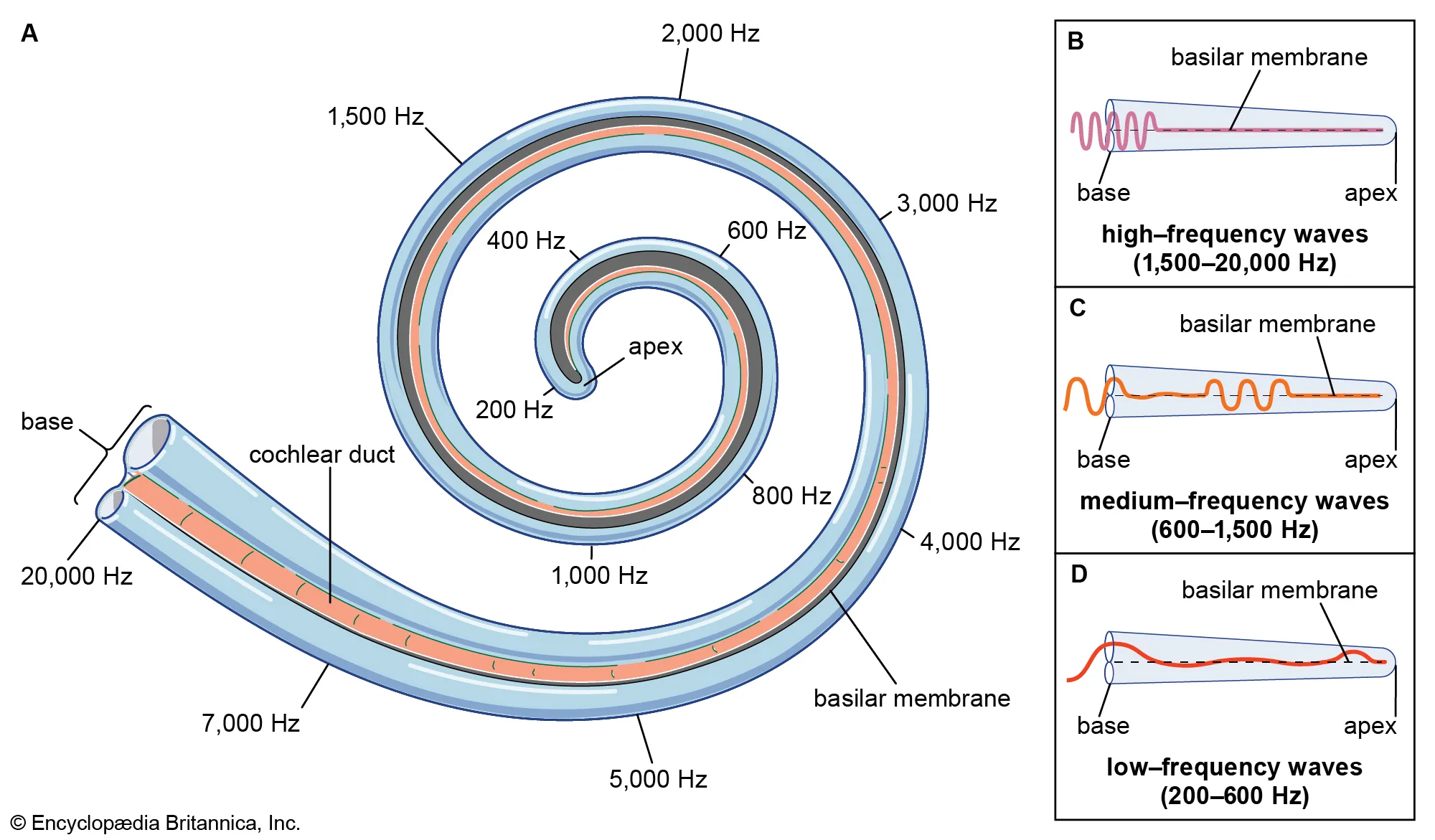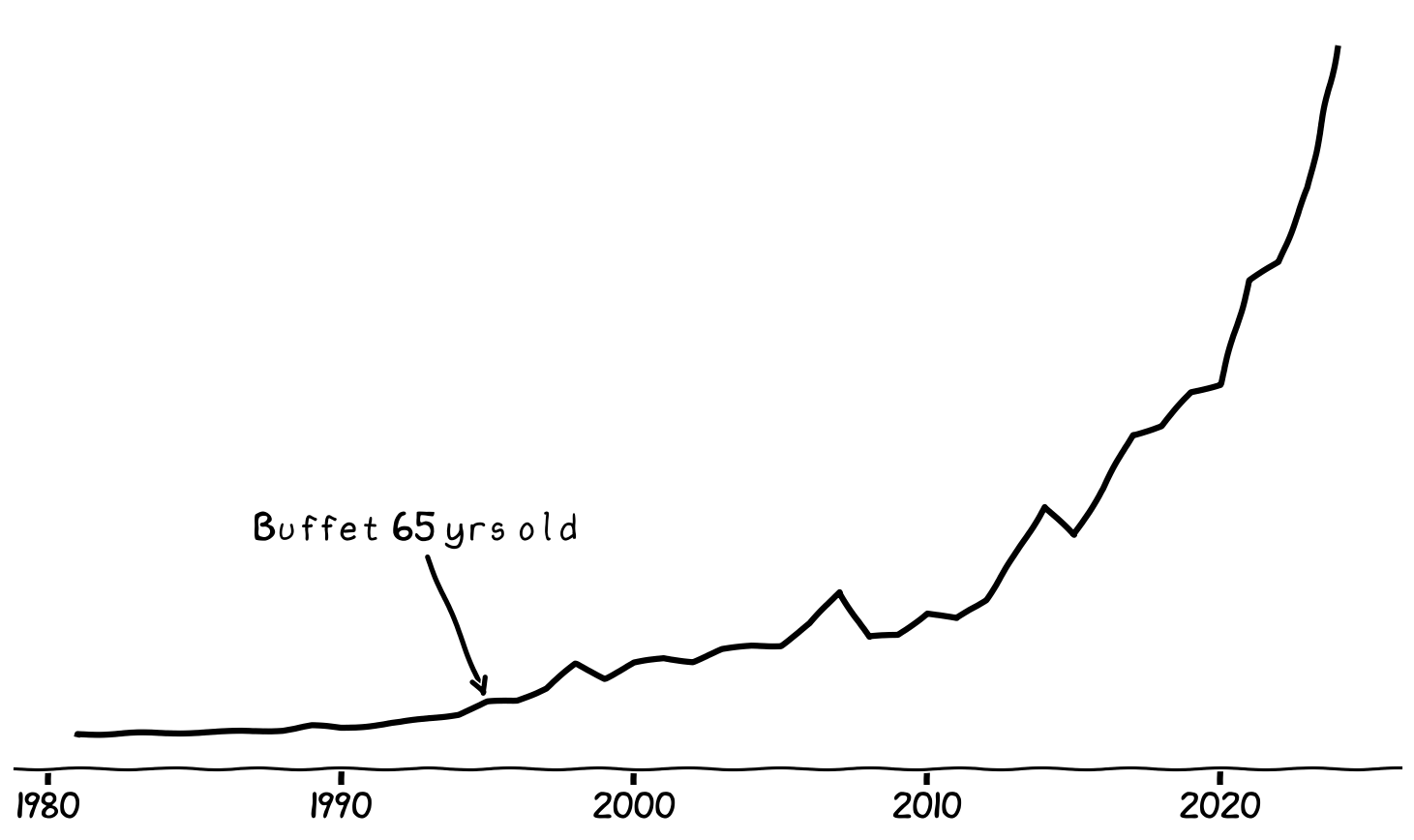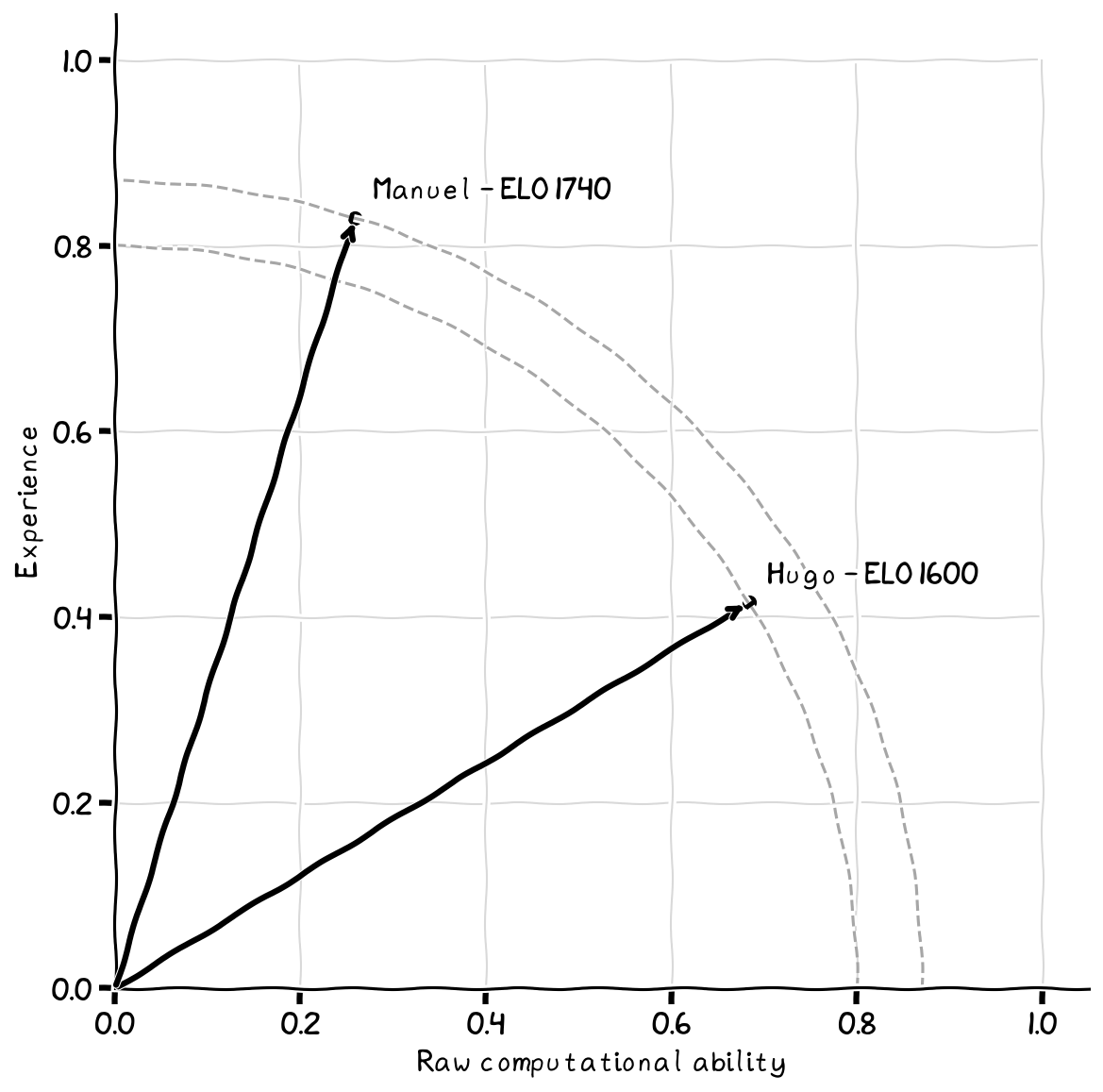At what age do humans peak?
I turned 29 yesterday. This will be the last year of my twenties, and that naturally brings up some morbid questions around mortality. I've always found it terribly unjust that human bodies just slowly decay until decrepit death sometime in their eighties (if you're even lucky to get that far).
During my life Earth has performed a full rotation around the sun 29 times. The Sun itself is not sitting still; it's moving forwards in space. Which means in truth we're moving in a spiral through the universe1. Next year I will have to draw one more loop2, and someday there will be no more loops to draw 3.
When is the "peak" of my life? Have I passed it? Is it still before me? Are you old, dear reader, are your best days behind you, or is there still hope for you?
I'd like to define peak as the product of raw ability, experience, and leverage. We'll see more about these three dimensions in a second. First, let's look at some notable current peaks, most of them outliers in one way or another, and try to find what they have in common. Finally, you'll be able to answer the question: have you peaked?
Sports
Lebron James was no doubt at his raw athletic peak in his first few years in the NBA, ages 18-22. Just look at this. However, that was not what is widely considered his peak as a player. That came later. He didn't win his first MVP until he was 24, his first NBA chip until he was 27, and his personal peak as a player, and the perhaps best individual basketball performance ever, didn't happen until he was 31, during the 2016 NBA Finals against an incredibly stacked Warriors team.
Even now, at 40 years old, LeBron still does not seem to have declined as drastically as one would expect. He's still averaging around 25 points, on higher efficiency than he used to. This is despite 21 years of mileage.
E-sports
In e-sports, like Counter-Strike, one would naively expect athletes to peak later and last longer than in physical sports like basketball or football. It is simply sitting in front of a computer after all, should raw physical ability not matter less?
The opposite is true. Counter-Strike players and e-sports athletes in general decline and retire by their mid-twenties. The number one ranked player last year, Danil "donk" Kryshkovets, is a kid aged only 17. Even at 16 he was dominating already. Him, and other top e-sports athletes are so young that it's legally challenging for leagues and teams to employ what are in most governments considered minors. Overwatch, another popular game, had to reduce their age requirement from 18 to 17 last year to accommodate stars like donk.
Why do e-sports athletes peak at such a young age? One argument is a higher reliance on raw computational ability and reflexes. Studies consistently show a peak in raw cognitive ability and reflexes at a very young age, with a steady slow decline starting in the early twenties 4. After age 25, processing speed slows by ~1-2% per year, though crystallized memory peaks much later in mid-forties. If you want to test out your own reaction time, try this fun tool here.
An interesting anecdote from my teenage years here is when I was on holidays with my family somewhere in Florida. My parents brought us to a shopping mall, where upon arriving I could hear this immensely loud and irritating noise. No one else could hear it in my family, not even my sister who was just 5 years older. I felt like I was going insane. I looked it up, and apparently it's a real thing: malls put extremely high-pitched, almost ultrasound speakers out their fronts because only teenagers can hear them 5. It's like a constant fire alarm in your ear and naturally makes teenagers stop loitering around your store. Very friendly. Our ear cells decline so rapidly that we quickly lose sensitivity of the higher ranges, especially if you listen to loud music or sudden noises like gunshots (or FPS games). This is because the hair cells responsible for high-pitched noise are at the beginning of the Cochlea, and are first in line to absorb the damage from loud noises (which are air vibrations, after all).

Imagine a row of sticks at the beach and waves sweeping them over one by one. The ones closest to the water fall first.
Back to Counter-Strike: it is clear that raw ability peaks at age ~20, and starts a slow decline afterward. Still, it is the same in Basketball and other physical sports, so why the drastic difference in age-related performance? Perhaps it is burnout. In basketball, and other pro-sports, there's an upper limit to how long you can train per day. After 1-2 hours of high-intensity training, you're done. You might do some light shooting and recovery, perhaps watch some tape, but that's the bulk of your job. Physical recovery is a key part of it.
Not so in Counter-Strike: it's much easier to stay in front of the computer for long hours. In the industry it is usual to train for 8 hours a day, peaking at 10 or even more before big competitions. No one retires from the NBA because of burnout; but many e-sports athletes cite it in their retirement interviews.
Let's look at a different mental sport, perhaps the "first" e-sport: Chess. Magnus Carlsen, the current undisputed best player by a wide margin, is 34 years old. However, he often cites that he is not as good as he used to be and years past his peak, considering his best form ages 23-28 6. The current FIDE world champion (because Magnus did not participate), Gukesh Dommaraju, is only 19 years old; only a bit over half Magnus's age.
How does decline look like in chess? Are you doomed to give up chess as the years pass, like people give up on Counter-Strike?
If you're reading this, you are probably in the tech world and likely know some chess. You'll also more than likely lose to Manuel Álvarez Escudero, a 104-year-old player who still actively plays in tournaments. He's rated ~1740 ELO nowadays, mediocre for a chess player but leagues above the average amateur. His chess peak came incredibly late in life; a very respectable 2160 ELO at age 80.
Maybe chess is just a memorization-heavy game ("experience" in the axis mentioned earlier), and Álvarez can compete because crystallized memory in the human brain decays slower than raw computational capacity. Certainly no centenarian could compete against an average hooper in your local pickup game.

Berkshire Hathaway's stock performance over time. The arrow points to 1995, when Warren Buffett hit retirement age. After this point, he would go on to make 96% of his current wealth.
What about Warren Buffett? Currently aged 94, he finally announced he'd be stepping down from Berkshire Hathaway leadership. Incredibly long-lived, Buffett is the best example of what maxing out on leverage looks like: he made 99% of his current wealth after age 50, of which 96% was after age 65 (commonly considered retirement age for most people). This sounds unbelievable, but it's just how compounding interest works. A 5% return on $100k is $5,000. The exact same return on $40 billion is $200 million. Of course, finding an investment opportunity that allows you to deploy that much size is much harder. Which makes it a true wonder that Berkshire managed to keep similar performance over time even as assets under management kept ballooning.
Let us visualize these cases of human performance and peak:
You can drag this 3D visualization around to explore the different personas and how they peak along the three axes of raw ability, experience, and leverage.
With this mental model, "Peak" is defined as the maximal distance from the origin (the Pythagorean distance). An unremarkable life stays close to where it started; an impressive life, in contrast, has a huge vector.
It is a useful model for comparing people. We can use it to visualize my ELO vs Manuel Álvarez. Leverage doesn't matter a lot in chess so let's look only at ability and experience:

My claim to chess fame is that I once beat an 1800 over the board.
You can see that Manuel is a better player than me, because he's further from the origin. Neat.
Exercise to the reader: apply this visualization to notable personalities and dimensions you care about. For example, painters and their peak fame. Or scientists, and peak discovery potential. Yourself and your own goals in life.
Final Section
I always like to think about how I can make things actionable. It's all well and swell to have a small existential crisis on my inevitable biological decline, spend some time tinkering with neat visualizations, but what can I (and you) do about it?
The first thing one has to do take to tackle a problem is to understand it deeply. I hope the mental model presented above is helpful, and by now it should be very obvious to you that your raw ability (intelligence, athleticism) is probably declining around 1-2% every year. That's biology and it is nonsensical to gloss over it because it makes us uncomfortable.
There are two things you can do about this. The first, and most obvious one, is to slow down the rate of decay. Humans have been obsessed with this since the beginning of time, seeking elixirs of youth and the like. We still know pretty damn little on how to fix the human body 8. However, there's some good content out there (and a lot of bad too). For concrete advice, I recommend Longevity: Separating Facts from Fiction, as well as some of Don't Die (beware, very eccentric founder). Personally I also strongly recommend a health tracker, under the mantra of you can't fix what you don't know. I use Whoop9 because I need free wrists, but any standard health tracker will do.
The second thing you can do is work on your strengths. Leverage is pretty much unrelated to age. Trump and Putin are both in their seventies, operating at a sad 40% cognitive capacity of their youth 10, and yet they are still peaking. Leverage is minimal in chess, but crystallized memory decays slowly: the 104-year-old chess player, Manuel, maxed on that axis. For your own life, keep leverage in mind and accumulate as much of it as possible. Play long term games with long term people. And deeply consider the dimension on which you want to peak. Chess rating? Parenting? Capital accumulation? You decide which mountain to climb.
I hope you enjoyed this post, it was a pleasure to write it and it's been a while since I published anything. If I pass the bar of noise/signal (a high bar nowadays!), consider following me on Twitter or leave your email in the comments below to be notified when I next post (probably in a few years)11.
And finally, as a palate cleanser, watch this phenomenal video: The Fable of the Dragon-Tyrant12.
Footnotes
-
If you like visualizations about mortality, you'll enjoy this other post! ↩
-
Unless Bryan Johnson has anything to say about this. ↩
-
it's called "The Mosquito" ↩
-
See this Joe Rogan interview ↩
-
The author is curiously named 0xfbifemboy on Twitter and sadly got suspended ↩
-
Biology is a Software Engineer's nightmare. It's like a gigantic, millennia old legacy codebase with horrible state management, where you CANNOT use debugging tools or even simple print statements. Scientists have to come up with the most ingenious crappy ways to be able to understand even a little bit of how we work and invent stuff like e.g. FMRI where we attempt to infer brain activity by seeing how much oxygen there is different areas of the brain, or Scintigraphy, where doctors literally inject radioactive substances inside of you to be able to trace where they go. ↩
-
Yes this is an affiliate link. If you use it I'll get a month for free (and you too) - not a lot but it's overpriced AF ↩
-
1.5% decay per year:
(75yrs-20yrs) \* 0.985^55 = 43%↩ -
my old email newsletter provider got acquired and extiniguished by mailchimp. Until I fix that, this is how my newsletter will work. ↩
-
and no, death does not give life meaning, that is just sad denial. ↩